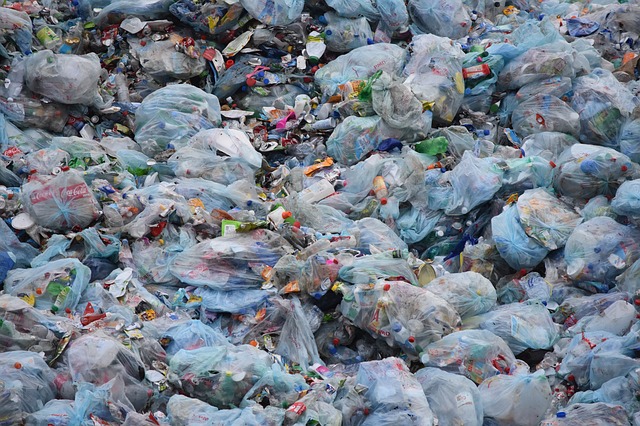 Plastic is used in many products we use daily, from plastic bottles to plastic bags to carpets, containers, electronics, and so much more.
Plastic is used in many products we use daily, from plastic bottles to plastic bags to carpets, containers, electronics, and so much more.
However, a problem that comes with plastic is pollution. Many plastic products can be used only once before ending up in the trash can as waste.
Even worse, these plastic products end up in our rivers and oceans. Since plastic does not disintegrate, they float around for many years causing problems to the surrounding natural environments.
Plastic Problems
Back in February, a dead sperm whale washed up on the shore of Spain.
 Necropsy results that were released last week show that the whale did not have an ordinary diet. Instead of the squid it normally eats, plastic bags, netting, and containers were found in its belly. Sadly, its belly was filled with 64 pounds of plastic waste!
Necropsy results that were released last week show that the whale did not have an ordinary diet. Instead of the squid it normally eats, plastic bags, netting, and containers were found in its belly. Sadly, its belly was filled with 64 pounds of plastic waste!
Because plastic cannot be digested, the whale’s digestive system had burst. Unfortunately, marine animals and birds are the biggest victims of our plastic use.
Over in Indonesia, rivers have been clogged with plastic waste. Plastic bags, bottles, and styrofoam packaging have clumped up together in a pile so large that it looks like an iceberg of plastic.
In fact, the problem is so huge that the President of Indonesia called in the army to clean up the waste. Soldiers are now working to remove the plastic, using nets to pull waste out of the river. However, this only works partially because as they remove some plastic, more waste keeps floating upstream.
Taking Action
Companies have started to cut down their amount of plastic use. In fact, on April 26, over 40 companies have pledged to eliminate all single-use packaging in the United Kingdom. By signing the UK Plastics Pact, they aim to make all their plastic products recyclable, reusable, or compostable.
Many countries have been placing bans or limits on the use of plastic bags. Starting with Denmark in 1993 and then spreading to all corners of the globe, taxes are placed on plastic bags to encourage buyers to not use them. Unfortunately, many consumers are not satisfied with these restrictions, as plastic bags are very convenient to use.
Meanwhile, restaurants in the United States are banning the use of plastic straws, especially in beach cities where the straws usually end up in the ocean nearby. Taiwan plans to place a ban on single-use plastic cups and straws by 2030. The United Kingdom plans to ban straws, stirrers, and Q-tips as early as next year. It won’t be long before many other countries follow suit.
As consumers, we can each do our part. Avoid using single-use plastic products, but if you do, do not just throw them away as litter. Join efforts to clean up the beaches, rivers, and even streets. Find a way to reuse, reduce, and recycle to produce less waste. Do your part, and the world will be one step closer to solving plastic pollution.
Sources: CNN, Ecowatch, Sciencealert, CNN, NYTimes, Channelnewsasia, Independent.co.uk, reusethisbag.com







